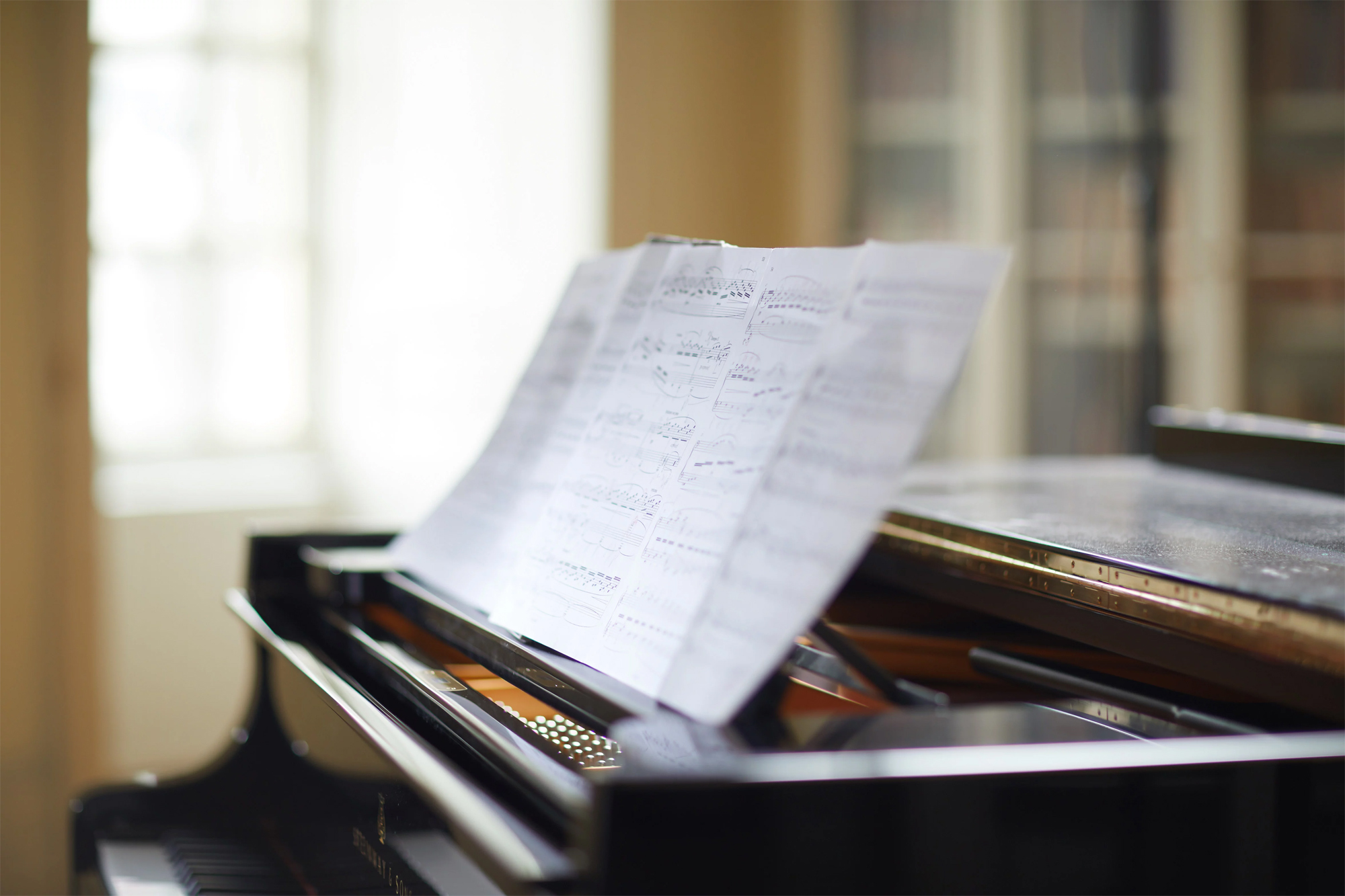Piano – Own Composition Starting Points

In our piano exams, candidates can choose to perform an own composition as one of their pieces, which can enhance their musical experience in a number of ways:
- it brings music theory to life
- it enables learners to express their creativity
- it helps with developing an understanding of musical styles and composers
- it provides flexibility and choice, making the exam personalised and tailored to the needs of the individual
- it encourages a holistic approach to learning music: performing, composing, listening, improvising
Own composition as part of a piano exam
Here are some guidelines for performing an own composition piece in an exam:
- Own composition pieces will be assessed in the same way as our listed repertoire. Marks are not awarded for the quality of the composition
- Own compositions must be comparable in technical and musical demand to the pieces listed for the same grade. Examples of compositional techniques that may be used at each level are listed in each grade section of the piano syllabus
- A typeset or handwritten copy of the composition must be given to the examiner at the beginning of the exam
- At Initial to Grade 5, own compositions may be notated in any easily readable form, including graphic score or lead-sheet. At Grades 6–8 they must be notated on a stave. Marks will be deducted if notation is incomplete or inaccurate, or if the performance varies significantly from the notation
- Own compositions should be candidates’ own unaided work, although teachers may offer guidance as necessary
Musical starting points and suggested techniques
For help with getting going, the following PDF provides a series of own composition starting points. These sample openings can be used as part of the piece presented in the exam. The PDF features, for each grade:
- a suggested musical starting point (as staff notation)
- the required duration of the piece
- some ideas for compositional techniques that may be included
Download Own Composition Piano Starting Points PDF
You can also listen to accompanying audio of these starting points by downloading the following MP3 files:
|
|
|
|
|
|
|
|